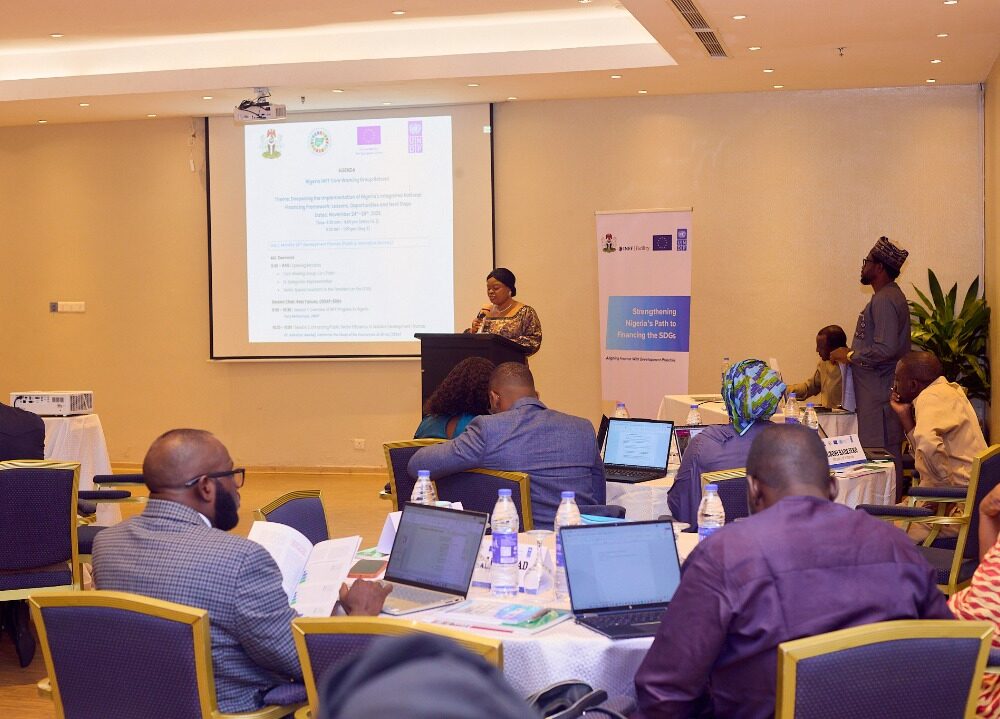The 9th national assembly is the worst in the history of Nigeria’s democracy. It achieved nothing relative to its fundamental responsibilities. It was an appendage to the presidency, having surrendered its independence and authority. Nigeria’s socioeconomic woes were compounded by the failure of the Ahmad Lawan-led 9th national assembly to checkmate the executive excesses. In particular, the huge debt which has sadly placed the country in a sorry state is a result of its ineffectiveness. Corruption, insecurity and poverty grew to a suffocating magnitude under its nose because it aided executive rascality. May Nigeria never again witness such a rubber stamp national assembly!
Every enlightened Nigerian today is familiar with these sweeping statements and their likes. They have become so ritualized that lately, they dominate every democratic governance discourse. Even right now, they still reverberate.
But, how did we get here?
Metaphorically, a “rubber stamp legislature” simply means an ineffective legislature. The term gained prominence in our political lexicon during the last dispensation when it was largely used to define the 9th national assembly as referenced above. This toga literally overshadowed every positive impact that was made by the then-federal legislature.
But in the real sense, is there anything like a rubber stamp parliament? And if yes, does it exist only in Nigeria?
Citing research findings, the features of a rubber stamp legislature include: giving “official approval to something without really thinking about it”, agreeing to “a decision, plan, or law…….without thinking about it much”; granting “approval to the actions or decisions of others without considering them”; approving “an idea, project, law, etc. without examining it carefully first” as well as “not disagreeing with” particularly the executive. So by inference, a rubber stamp parliament is inherently lacking in a sense of scrutiny and strength of willpower. It does not embody the wishes of the people. It is a threat to democracy and also constitutes an avenue for wastage of public resources.
Further scratching below the surface, a rubber stamp legislature is “mostly powerless yet officially recognized” and endowed “with considerable de jure power but little de facto power” for which it “rarely or never disagrees with more powerful” organs. Elsewhere, it is called “a toy parliament”. These are additional proof that a rubber stamp legislature generally is lacking in influence.
For instance “the British parliament is a relatively non-influential, and perhaps even peripheral, institution with respect to policy. The House of Commons, in particular, is widely criticised, being described in the media as ‘a legislature on its knees’ or ‘an elaborate rubber-stamp’.” In China also, because “legislation is decided by party leaders prior to the session”, the country’s top legislature, the National People’s Congress, NPC, is “being derisively described as a rubber-stamp parliament”.
Meanwhile, writing on African Parliaments: Do They Carry Any Real Political Weight?, Olivier Marbot lamented that “parliaments on the African continent struggle to fulfil their legislative role, with the overbearing figure of the head of state – seen as alone embodying public authority – often taking centre stage and relegating the legislature to the background as a mere rubber-stamp…..In many African countries, whether their institutions are modelled along British or French lines, political life often, if not exclusively, revolves around the head of state and his or her inner circle”.
Then spotlighting Uganda, Prof John Barya hinted that “whenever important decisions need to be taken, they are not debated logically within Parliament but rather first processed in the (ruling National Resistant Movement) NRM caucus where the majority is whipped into endorsing the caucus position even when they don’t believe in it”.
And of course, the Indian parliament is no different. A renowned political activist, Shashi Tharoor, regretted that “today…..our government has successfully reduced the parliament to a notice board and a rubber stamp. It is a notice board for the government to announce whatever it wants to do and it is a rubber stamp because their crushing majority obediently passes every bill in exactly the form it comes from the cabinet”. The list is inexhaustible.
So evidently again, this phenomenon is not peculiar to Nigeria. But in her own case, the legislature lost its authority, relevance and assertiveness sequel to a weak constitution. It was not deliberate, but a creation of the laws, albeit unintended.
Therefore, while the misgivings about a rubber stamp legislature are justified, they should be matched with the realization that Nigeria cannot have the kind of legislature that meets the expectations of the people until the 1999 constitution is completely replaced or at least comprehensively altered. The laws are largely as faulty as they are undemocratic, thereby making it impossible for the legislature to deliver except with a gracious president.
Otherwise, how can a legislature successfully checkmate the executive under a constitution that does not provide for definite consequences for breach or rascality?
To begin with, the constitution stipulates that certain categories of presidential nominees shall be screened and confirmed by the Senate, but is silent on the ultimate implications of appointing without legislative confirmation.
Also, the legislature is to scrutinize and approve every plan to borrow money for governance under any guise, but nothing is said about the repercussions of taking such loans without parliamentary consent or even how such breaches can be blocked in the first place. Similarly, the constitution does not envisage a scenario where the executive embarks on expenditure without official budgets.
Furthermore, the legislature, in discharging its oversight functions, is to summon any entity, both private and public, for questioning and also issue warrants of arrest against defaulters. But if for instance, the president or his agents acts in breach of this provision, who would execute the orders? Is it the police chief appointed by the same president that would order the arrest? Equally, what is the position of the constitution in a situation where the executive decides to starve the national assembly of operational funds given that the legislature has no access to the national treasury?
Again, what happens if the heads of the security agencies, who are directly answerable to the president, decide to withdraw their personnel from the services of the national assembly? And then importantly, if the parliament for any reason overrides the presidency, how will the objectives be achieved without the willingness of the executive?
These are some of the salient contradictions that cumulatively render the constitution weak resulting sadly in a powerless and ineffective legislature.
Hence, it is a disservice to public morality dismissing the legislature as a rubber stamp simply because it is not engaging in conflicts with the executive. A vibrant parliament is certainly not about friction and confrontations.
Especially in developing countries, a sensitive legislature limits itself to the sphere of influence available to it. Aware that there are no solid constitutional protections for effectiveness and efficiency, such parliament avoids grandstanding or unnecessary fights. Rather than unproductive struggles, it settles for collaboration in the overall interest of the citizenry because different arms of one government cannot engage in hostilities without impoverishing the masses that they are elected to protect. Once again, it takes a magnanimous Nigerian president for the legislature to operate optimally because, by the constitution, he is the most powerful the world over.
The 8th Senate did not confirm Ibrahim Magu but he served as the Chairman of the EFCC for five years. The same assembly made a resolution that the comptroller-general of the customs must wear official uniforms as the laws demand, yet for eight years he functioned on plain clothes.
The 9th Senate made three separate resolutions for the then-service chiefs to be dropped for under-performance, but former president Muhammadu Buhari ignored the directives and even extended their tenures when they were due for retirement. Then apparently out of mutual respect, Buhari did not appoint Lauretta Onochie as INEC commissioner upon rejection thrice by the senate, while the same parliament at a very odd plenary, ratified the funds that were expended months earlier by the presidency without legislative approval. Are these not further testimonies that the legislature is at the mercy of the presidency?
Consequently, the president of the 10th Senate, Godswill Akpabio, allowed reason, courage and foresight to take pre-eminence. He explicitly campaigned that the Senate under him would have a harmonious relationship with the executive to deliver sustainable good governance. His colleagues elected him on that premise thus implying that such disposition has become an adopted corporate strategy.
Upon assumption of office, he was quick to remind them that their “choice reflects the collective will of the Senate” and also that Nigeria today has in Bola Tinubu, a president “who is committed to a strong economy, national security, inclusion and the rule of law”.
Akpabio was emphatic that “the antecedents of Mr President and his actions in office these past two weeks give not just a pointer but bear witness to an executive government that knows the challenges of the country and is in a hurry to resolve same” adding that “we should, therefore, anticipate an executive that is proactive, progressive and practical”.
And on the senate’s obligations, he declared that “our laws must, therefore, align with the vision of Mr. President to protect and provide for our people at the innermost core of their essence while our actions must also guarantee the best and most efficient use of our national commonwealth”.
The senate president further stressed that “we must, therefore, as a Senate, rise to partner with His Excellency the President of the Federal Republic of Nigeria, and provide the required legislative framework and legal environment for him to anchor the policies and programmes that he espouses for the country”.
Then on what this senate represents, Godswill Akpabio concluded by charging his colleagues to see “every reason to support good policies and programmes of the Federal Government, and I call on you to put this national interest first at all times. Our Senate, the 10th Senate of the Federal Republic of Nigeria, will be a Senate for all Nigeria”.
Empirically, Akpabio has placed his cards on the table. And he is dispassionate about it. The 10th Senate has to complement a president “who is committed to a strong economy, national security, inclusion and the rule of law”.
So if this strategic framework reflects a rubber stamp senate, then good governance is no longer about “a strong economy, national security, inclusion and the rule of law”.
Besides, it bears repeating that a rubber stamp legislature is inevitable in Nigeria, except one is living in self-denial. The executive arm, principally the presidency, can always “depart from the democratic spirit of the Constitution” or take “autocratic steps” and get away with them because there are no mechanisms to practically resist such tendencies or even bring perpetrators to book. Yes, the executive has enormous protections to act in manners that suggest that “our Constitution is too easily subverted in an undemocratic way” and also that the Parliament’s ability to hold the government accountable is completely eroded.
Therefore, until we strengthen the constitution towards a deepened democracy, every enlightened Nigerian adult today is culpable in the making of a rubber stamp 10th senate. One does not need to be politically active to champion nation-building. Succinctly, it is the height of hypocrisy to subjectively judge the Akpabio-led Senate when you have no history of lending a voice through your elected representative for a strong constitution that guarantees equalization of powers among the arms of government; except also, you detest “a strong economy, national security, inclusion and the rule of law”.
*Egbo is a parliamentary affairs analyst





